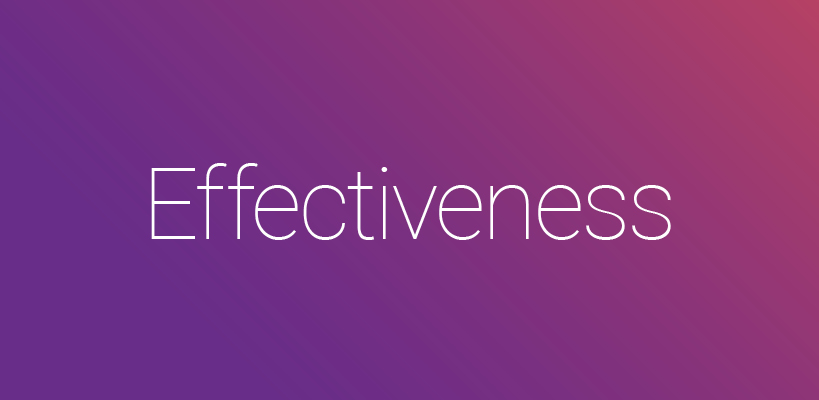When we have a lot of things to do and we start to get behind in our work, we tend to speed up. This could backfire since the faster we go, the more we focus on how much we are getting done and less on what it is we are doing. It goes well if we are always doing the things that must be done and not all those things that should be done.
We should do everything we have been given or decided to do, but it is frequently impossible to do so in the time available. We must be careful while we work that we only select the must do things, the most important things, the right things.
Getting more things done is being efficient, but it should never take priority over being effective. It does not matter how efficient you are if you are doing the wrong things.
When people first sit down (or stand up) to start working they have already considered what is important and have no problem working on the right things. But as they pick up speed, focus on efficiency, and allow other jobs to be added as they progress, they tend to continue to focus on getting more things done while losing their focus on making sure that they are all the right things. They start to confuse activity with accomplishment. In time, they are working so fast and efficiently that they do not realize they are accomplishing less. Time management is not simply getting more things done in less time. It is getting the most important things done in the time available.
If this were not true, there would be no 80/20 Rule (Pareto’s Principle). And yet, it has been shown time and time again that about 80% of the most significant results are achieved by only 20% of those things that we do. It is not always that precise ratio, but certainly most of the results are achieved by a relatively small portion of the tasks we complete and activities we perform.
If people were prioritizing as they worked, and always working on the most important activities, there would be no need for rushing, or nonstop activity, or getting behind on the job – all of which are counterproductive.
Efficiency will allow you to do more things, but if they are the wrong things, you are wasting precious time. And in the process, you could generate more stress, lower morale, be less creative, and experience depleted personal energy – all leading to diminished results.
On the other hand, if you focused on effectiveness, doing the right things, you would conserve your energy, alleviate stress, free up time for creativity, get more enjoyment out of your job, improve personal relationships, and multiply your results.


Recent Comments